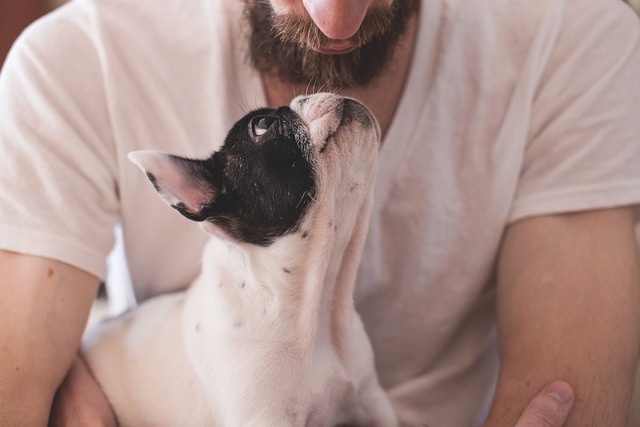
Why Does My Dog Eat Grass? Causes and Solutions
Dogs are fascinating animals with a range of behaviors that can sometimes leave their owners puzzled. One of these behaviors is grass eating. It might seem strange or even concerning when your dog suddenly starts nibbling on grass. Is this normal? Is it a sign that something is wrong? In this article, we will answer these questions and explore the various reasons why dogs eat grass.
1. Evolutionary Behavior: The Wolf in Your Dog
Before we dive into modern reasons why dogs eat grass, it’s useful to look at the evolutionary origins of our furry friends. Dogs are descendants of wolves, and many behaviors observed in dogs today are inherited from their wild ancestors. Observations have shown that wolves occasionally consume grass and other plant materials. It’s believed that this behavior is instinctive, perhaps as part of their natural diet or to aid in digestion.
Conclusion: Eating grass might be a deeply ingrained behavior rooted in the instincts of dogs. This behavior shows that dogs, much like wolves, may consume plant material to supplement their diet.
2. Grass as a Digestive Aid
A common belief is that dogs eat grass to help with digestion or to induce vomiting. In fact, it’s not unusual for a dog to vomit after eating grass. Grass could act as a natural emetic. If a dog has ingested something that irritates its stomach, eating grass might be a method to soothe the stomach or expel harmful substances.
Conclusion: Grass eating can be seen as a way for dogs to cleanse their stomachs. However, it is important to note that frequent vomiting could indicate more serious health issues.
3. Nutritional Deficiency: A Natural Supplement?
Another reason dogs might eat grass is related to their diet. If a dog has a deficiency in certain nutrients, it may try to compensate by eating grass. Grass contains fiber, which can be beneficial for digestion, as well as small amounts of vitamins and minerals. Some dogs may instinctively eat grass to supplement their diet.
Conclusion: Grass could serve as a natural source of fiber and other nutrients. Dog owners should ensure their pet receives a balanced diet to avoid potential deficiencies.
4. Boredom and Behavioral Causes
Not all reasons for eating grass are biological. Sometimes, dogs do things simply because they are bored or seeking attention. If a dog eats grass regularly, it could be a sign that it needs more mental and physical stimulation. Dogs are intelligent animals that require regular exercise and mental engagement. A bored dog might start eating grass simply because it’s available.
Conclusion: Grass eating can indicate that your dog is bored or not getting enough stimulation. In such cases, more playtime or a new training routine could help.
5. Taste and Texture: Just Enjoying a Snack?
Some dogs might simply like the taste or texture of grass. The feeling of grass between their teeth or the taste of fresh greens might be appealing to some dogs. Just as humans have different tastes, dogs can develop preferences for certain flavors or textures.
Conclusion: If grass eating is infrequent and not accompanied by other health issues, it could simply be a harmless habit that your dog enjoys.
6. Medical Reasons: When to Be Concerned
In rare cases, grass eating could signal a medical problem. If your dog eats grass regularly and exhibits other symptoms such as vomiting, diarrhea, lethargy, or weight loss, it is advisable to consult a veterinarian. There could be gastrointestinal issues or other health concerns that require treatment.
Conclusion: Regular grass eating combined with other symptoms warrants a veterinary check-up to rule out serious health problems.
7. What to Do If Your Dog Eats Grass
- Observation: Pay attention to your dog’s behavior. If they eat grass occasionally and seem otherwise healthy, there is likely no cause for concern.
- Check Their Diet: Ensure your dog has a balanced and nutritious diet. Deficiencies can be avoided with high-quality food and possibly dietary supplements.
- Training and Stimulation: Provide sufficient physical and mental stimulation. Games, walks, and training sessions can help prevent boredom.
- Consult a Veterinarian: If grass eating is frequent and accompanied by other symptoms, seek veterinary advice.
8. Conclusion: Grass Eating Is Mostly Harmless
Most dogs eat grass without any negative consequences. It can be a normal behavior that stems from dietary needs, boredom, or instinct. Dog owners should remain attentive and ensure their pet is healthy and happy. A balanced diet, regular exercise, and adequate mental stimulation are key factors in promoting a dog’s well-being.
In most cases, grass eating is not a cause for concern but rather a typical dog behavior. By observing your dog and providing proper care, you can ensure that your furry friend is healthy and content.


